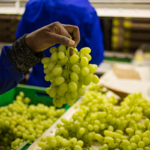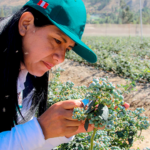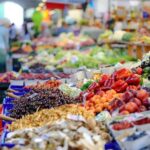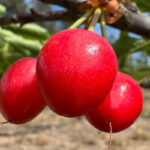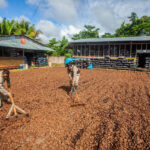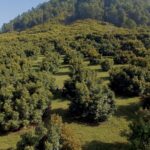South Africa: Citrus volumes could end up lighter than forecast, exporter warns

While expectations for the South African citrus export forecast were high at the Citrus Growers Association’s (CGA) summit early last month, with the nation predicted to send a record 137 million boxes overseas, some in the industry have warned that exports may be lighter than previously anticipated.
Sunday Rivers Citrus Company’s CEO Hannes de Waal told FreshFruitPortal.com: “Take the official estimate given at the summit and reduce that number by five million cartons because, already, we are late, and some problems have started, giving fruit lower estimates on some categories.
“Whether the Western Cape is totally out of the drought, we are not certain at this point. So ... a lack of rain may possibly bring volumes down a little bit all over the country,” De Waal explains.
Concerns about less-than-favorable growing conditions were previously mentioned by CGA CEO Justin Chadwick in early March, who said: “In the north of the country, there have been dry and hot conditions; this was also the case in the Eastern Cape and so there will be some impact.”
Still, Chadwick had added that harvests in the south of the country continued to hold promise, saying: “The advantage of the widespread of growing regions is that the southern African region always meets the required volume and quality."
Yet, De Waal believes things have changed in the last few weeks: “With what I see in South Africa, I don't think the supply is going to be as strong as we may have thought a month ago. It seems to me that we're still in that dry cycle, in a drought cycle and we already see that crops are lighter on the first varieties that come out than what people estimated.”
De Waal says it is unclear how production volumes would likely compare to 2018, but adds: "Whether we get to the volumes that we estimated at the summit, I can't say."
“We had a little bit of good rain just prior to the summit, so that made us very very optimistic but subsequent to that, the last month, again, it's been dry. Not much has happened.”
Another factor that could reduce the initial season forecast is the adjusted harvesting timings. “The start of the season was delayed roughly ten days,” says a representative from Everseason.
De Waal’s estimate was even later. He said the season’s start would likely be “two or three weeks later than what we thought it would be or expected”.
Speaking about navels in particular, he added: “If we have a very long Spanish season already, most of us are hanging a little bit longer than what we would've wanted…and that will already reduce the crop that comes down.”
Regardless of these challenges, new production areas in the country could offset any reduction resulting from a slow start or climatic issues, according to the sources.
The Everseason representative says he expects that South African volumes will end up being higher than last season, explaining: “It's mainly due to the new production coming in.”
De Waal also remarks on the rise in plantings, saying: "There's a lot of growth in South Africa because people have planted a lot of trees, especially mandarins and lemons”.
However, he adds that an issue facing South African citrus is unfavorable yields: “The yields on your already established orchards are not what they're supposed to be, and this is what makes your estimates very difficult. You've got new trees bearing and new fruit coming in but due to the fact that it's new trees and fruit, your pack-outs are never very high and then…it's difficult to estimate exactly what's going to happen."
















